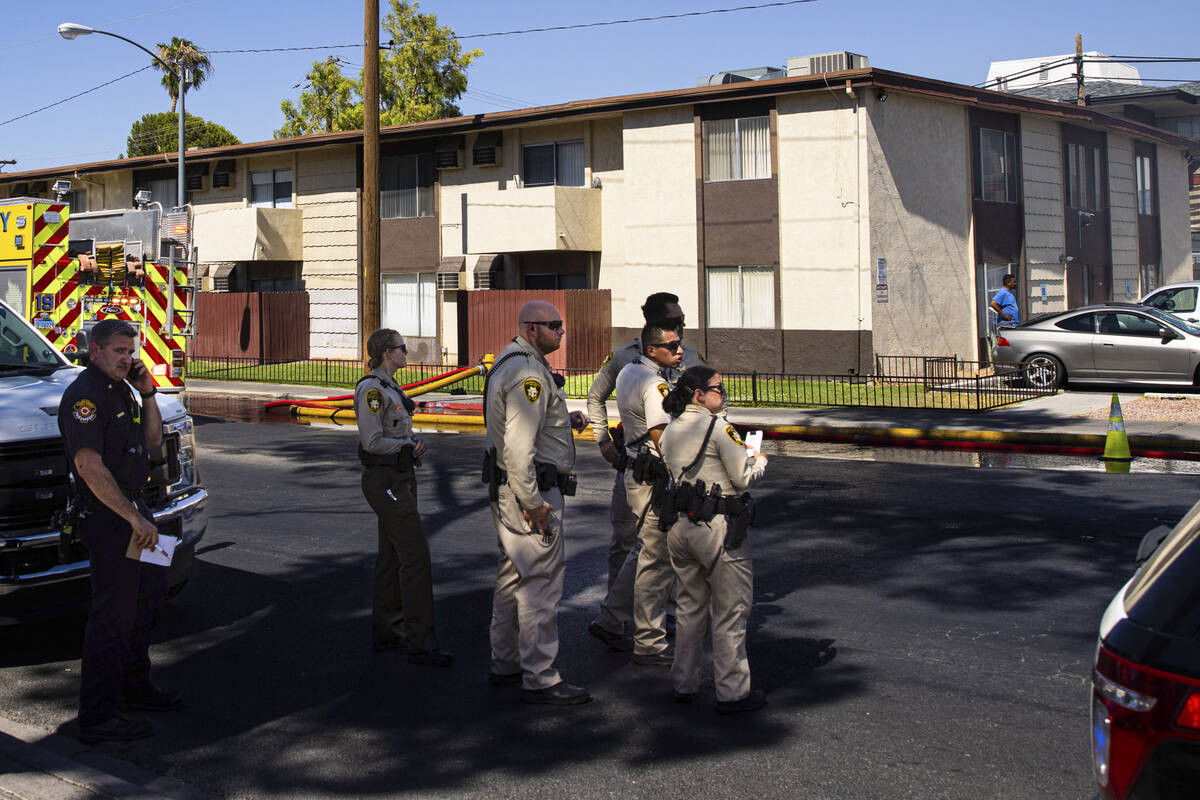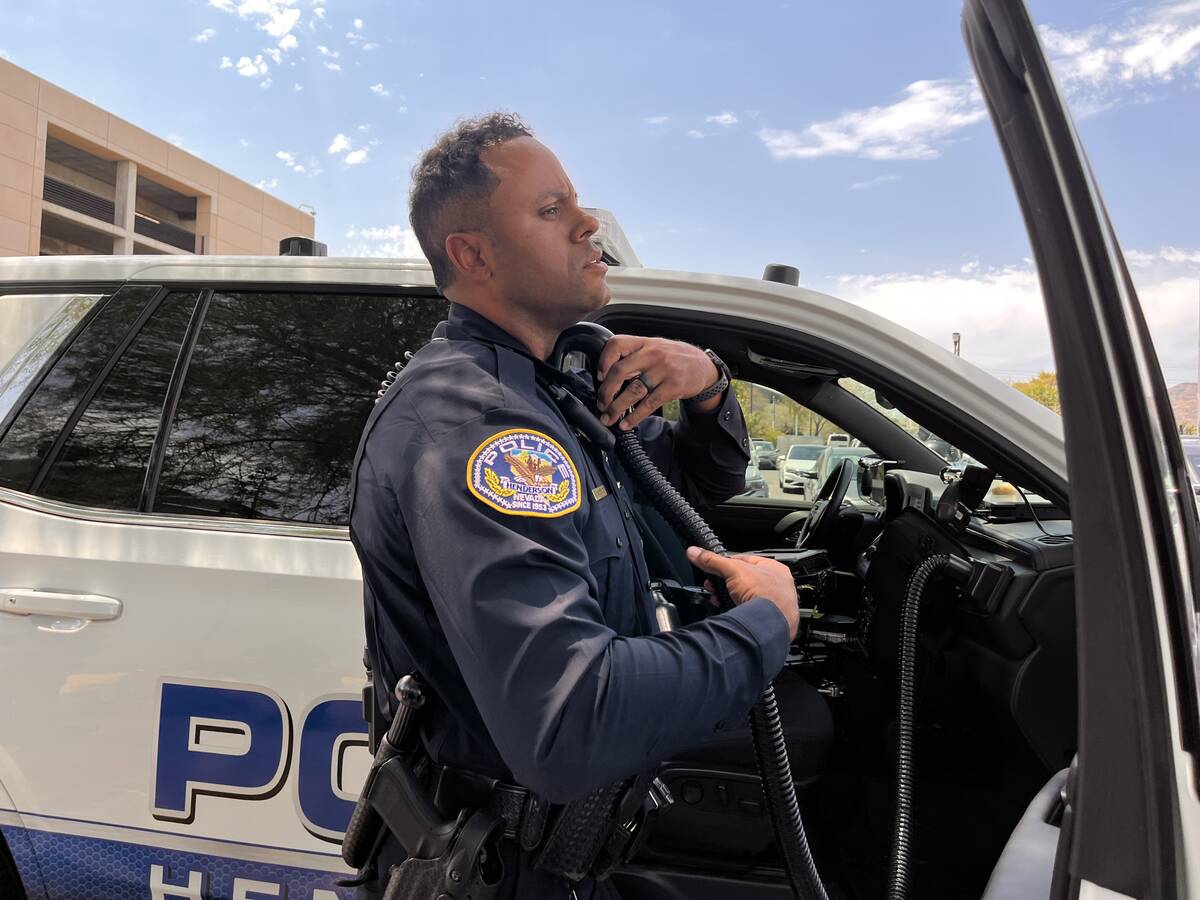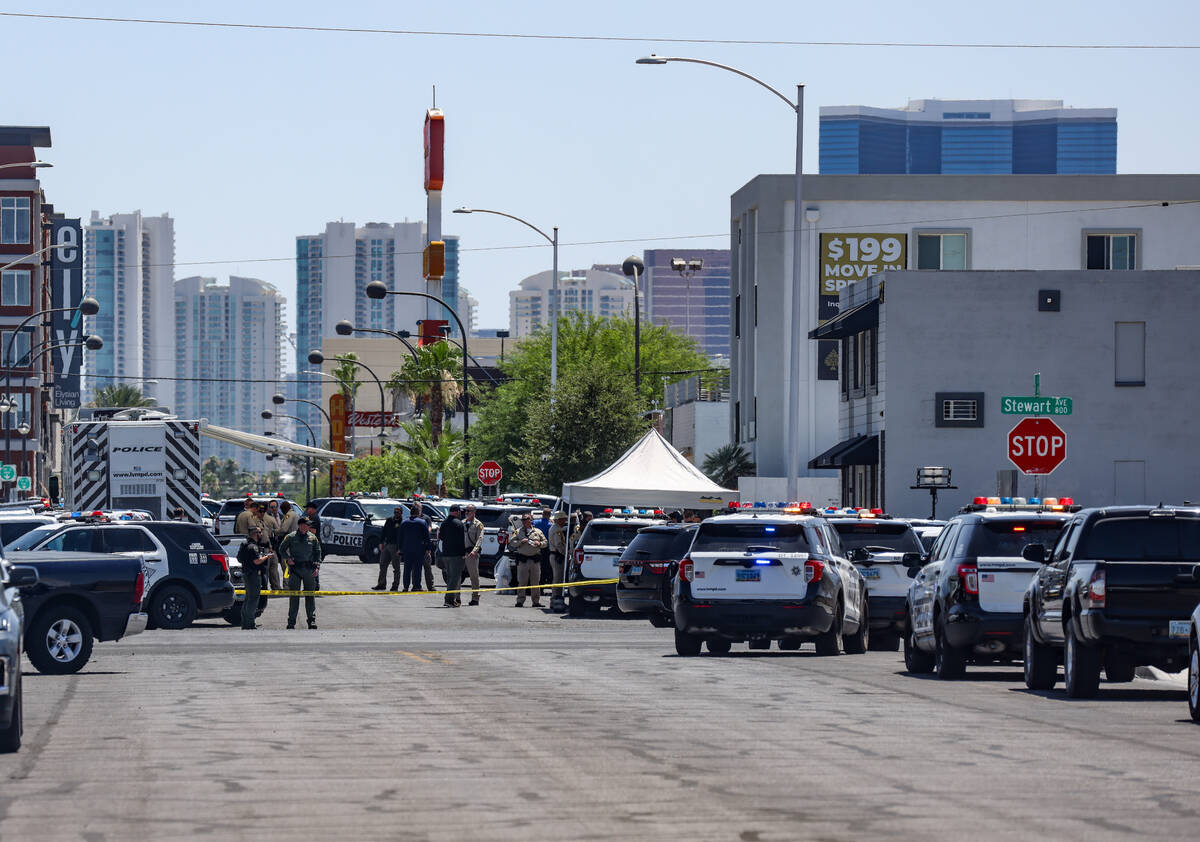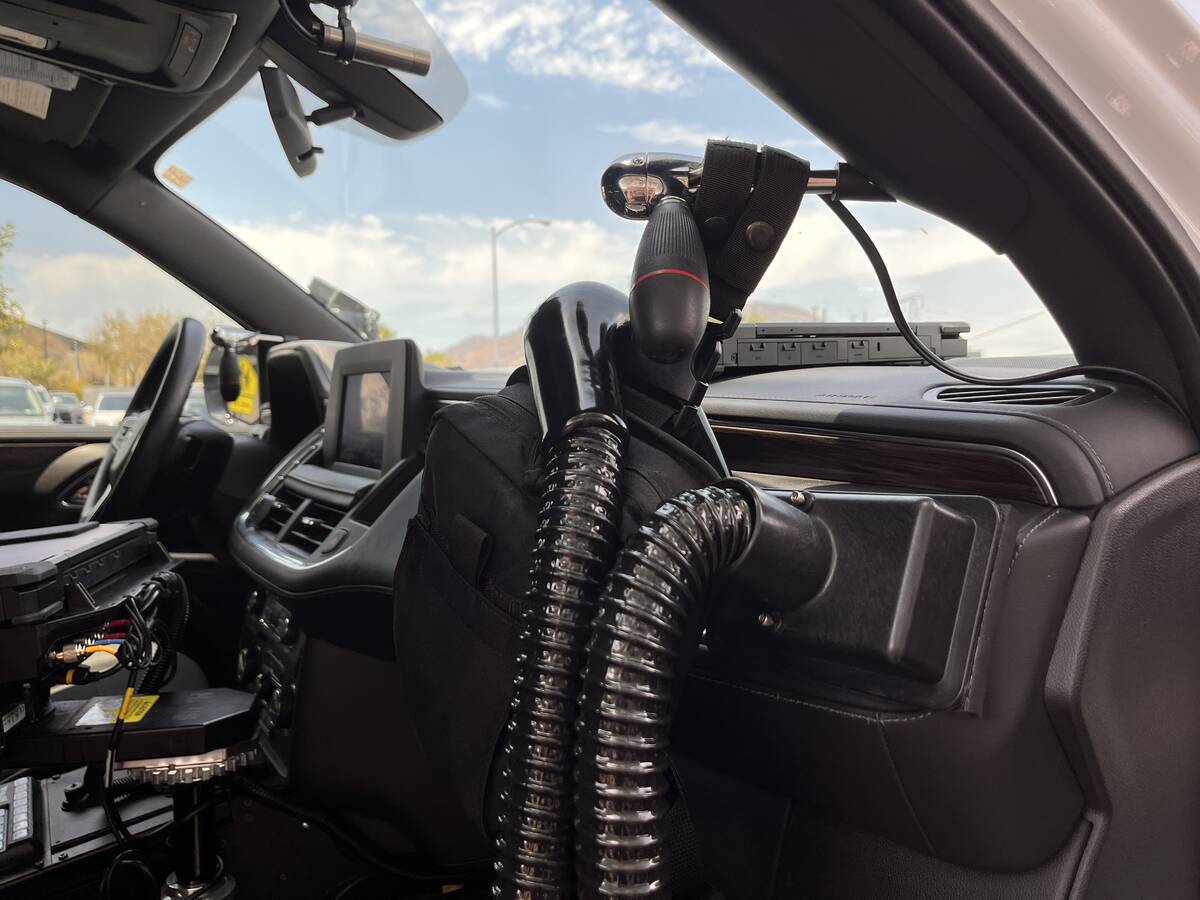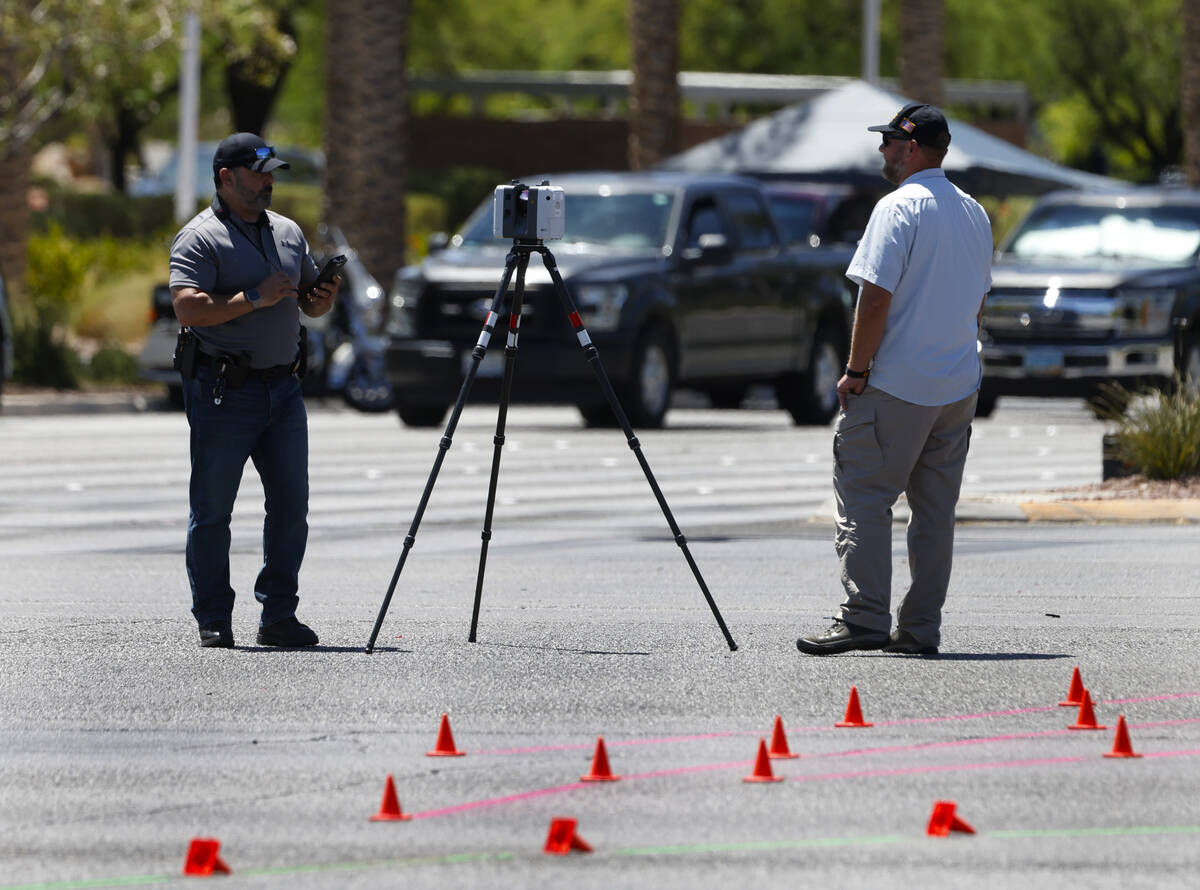Policing in the heat: Are Vegas’ record-breaking temps affecting law enforcement?
Under searing temperatures, the Metropolitan Police Department experienced what Sheriff Kevin McMahill called a “very busy” ten days as he spoke at a a community event late last month.
As Las Vegas’ June heat smashed existing records with an average daily high of 106.2 degrees, violent crimes and police shootings were felt throughout the valley.
These two phenomenons may be related, according to Patrick Behrer, a researcher at the World Bank.
“Heat makes people uncomfortable,” he said.
“Because people are being made uncomfortable, they become more irritable or more aggressive,” Behrer, who has studied the impact of heat on violent crime rates and law enforcement, explained.
Metro alone had four officer-involved shootings within these ten days.
“Every one of those things is tragic,” McMahill said, speaking at the June 27 event.
This meant that in June Metro more than doubled its yearly total number of police shootings to seven in 2024. Beyond city limits, shootings gripped North Las Vegas and Henderson as well.
“I don’t really know what the hell’s going on,” McMahill said. “Other than it’s hot, and we’re not doing well enough to get out to the people that are mentally ill, or addicted or homeless.”
Heat and violent crime
When Behrer and his team got access to a Texas dataset that allowed them to analyse all of the ways that individuals interact with the criminal justice system, he decided to look into how heat affects people who commit crimes.
“People commit more crimes on hot days,” Behrer said. But the increased number is the product of an increase in almost exclusively one category: violence.
And while all assaults increased on hotter days, the really striking statistics came from especially violent assaults, Behrer said.
This means that as temperatures rise, police may have an increased number of violent crimes that they need to respond to, according to Behrer.
But Henderson Police Department Officer Marcus McCrary said that in his experience, he can’t say that heat drives violent crime.
“I can say that heat can make people more irritable,” he added.
Behrer’s research also found that “people are more likely to reach for guns on hot days,” he said, noting an increase in weapons offenses in the heat.
All four of Metro’s most recent shootings by police officers referenced by McMahill involved an armed suspect, according to data collected by the Las Vegas Review-Journal.
‘Police are people too’
Having studied the impact of extreme heat on violent crime levels, Behrer switched gears.
“After you’ve looked at what happens to people who are committing crimes, it’s pretty natural to ask what happens to the people who are tasked with arresting individuals,” he said.
The data Behrer observed didn’t show an increase in police shootings, he explained.
“It just didn’t happen in our sample,” he said.
But the data did show that police make fewer arrests relative to the number of crimes in hotter temperatures, and that the arrests they do make are less likely to lead to a successful prosecution, he said.
Behrer explained that this could two things: police may be overwhelmed by an increased number of violent crimes on hot days or make more arbitrary arrests.
While a lack of good data on police behavior and actions means that he’s not actively investigating this issue, Behrer feels that it’s important to ask whether extreme heat affects how officers make decisions.
“We know a lot at this point about how heat impacts people committing crimes,” he said. “We still know very little about what heat is doing to police.”
He feels that it’s a plausible hypothesis that heat could have similarly intense impacts on police behavior: “Police are people too,” he said.
Metro declined requests for an interview, but in an email stated that “despite weather conditions, we will continue serving and partnering with our community.”
Beating the heat
While research shows that heat can foster aggression and a decline in cognitive ability, Behrer said, there are ways to mitigate these effects. One of them is working together.
In scorching temperatures, Henderson officers have been taught to “take care of each other,” according to Sgt. Daniel Medrano.
While the department doesn’t offer programs focusing exclusively on the impacts of heat, according to McCrary, officers go through a training called ABLE, or Active Bystandership for Law Enforcement.
This training empowers officers to tap each other out if needed.
“We’re constantly monitoring crime, but we’re also monitoring each other,” McCrary said.
Medrano said that no matter the rank, any member of the force can tap someone out. This is the case if an officer needs to re-hydrate as well, he said.
Some officers are turning to new technologies like “Cool Cop,” a vacuum-like vent that attaches to a car’s air conditioning, to combat extreme temperatures.
The “Cool Cop” lets McCrary comfortably stand outside his vehicle during traffic stops, he said.
Practical situations like this are important, Behrer emphasized.
“It is hotter now than it used to be,” he said. On July 7, Las Vegas set a new all-time record high of 120 degrees.
But rising temperatures are “making people a lot more aware of the consequences of being exposed to high temperatures,” he said.
Contact Estelle Atkinson at eatkinson@reviewjournal.com.



